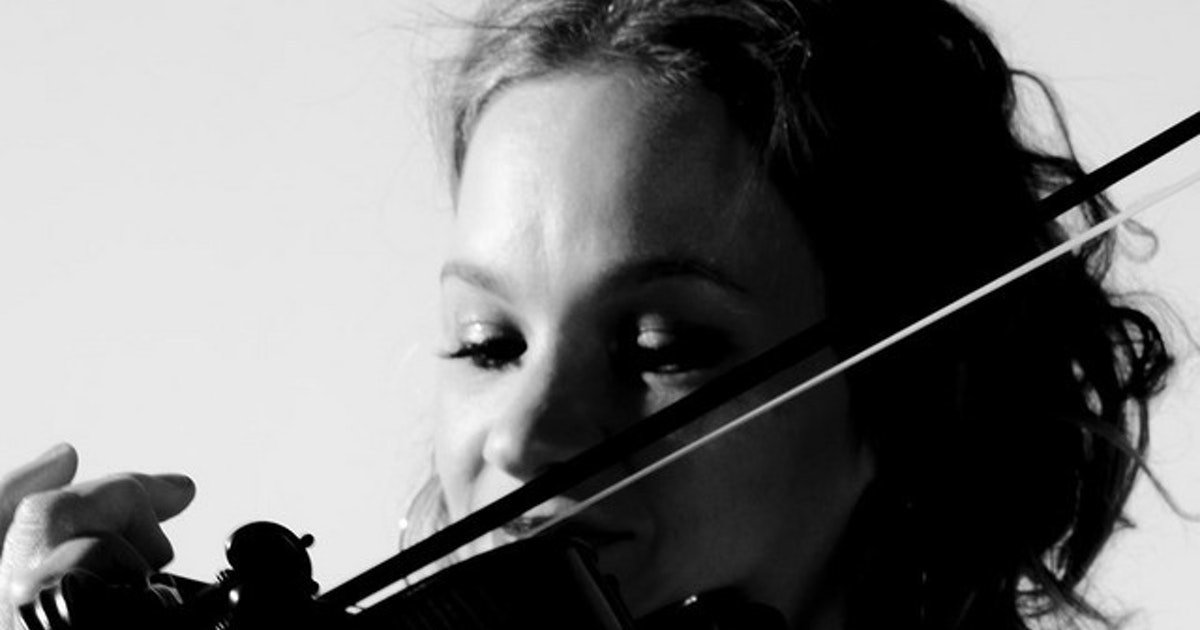Disappointing

Hilary Hahn’s program last evening in the Kennedy Center’s Terrace Theater was disappointing on several levels.
This sterling violinist, in her early 40s but still youthful and glowing, brought her trademark perfectionism and charm to the proceedings (joined by cellist Seth Parker Woods and pianist Andreas Haefliger). But the concert left us with a feeling limned by Woody Allen in Annie Hall, about the two ladies who try a new restaurant; one says “the food here is terrible!” and the other rejoins “yes, and such small portions!”
Here, the three musical selections on the program together amounted to barely more than an hour of music. Washington Performing Arts, the city’s premier presenter of world-class offerings, should have demanded a full meal. But the appetizer -- Be Still & Know, a piano trio by Carlos Simon (this season’s Composer-In-Residence at the Kennedy Center) -- was watery gruel indeed. A short but dreary essay of slow arpeggios in the piano, over which the strings laid long lines, reminded me of the scoring for a scene in a tv hospital drama where the doctors stare at charts and then look worriedly off into the distance. One can forgive a misfire if the piece is a world premiere to which the artists have had to commit without hearing it. But this trifle (inspired, according to the composer, by a quote from Oprah Winfrey) was written in 2015. Why Hahn felt it deserved further exposure here was a mystery. Worst of all (to me) was that it required little more than high-school-level skill from the musicians. Aargh!
Zoltán Kodály’s Duo, Op. 7 is a colorful showpiece for violin and cello, and I looked forward with great anticipation to hearing it through Hahn’s sizzling virtuosity. But Woods, who has forged a successful career doing all manner of alternative and avant-garde repertoire, was out of his element here. His classical technique is that of a middling orchestra player, and the mismatch was evident in every phrase. Tempos were sluggish, particularly in the finale, he didn’t essay the difficult opening theme of the Adagio high up on the G-string as the composer required, and he miscounted in a couple of spots. The piece only works when two equals are challenging one another, but here, Hahn was essentially carrying him.
After intermission, Hahn and Haefliger offered the last Beethoven sonata (Op. 96), a quirky yet profound equal dialog between instruments. And here too there was a mismatch, but it was in volume. I don’t know the extent of Haefliger’s chamber music experience (I see that he has a couple of CDs accompanying a singer), but on the basis of last night, he still has much to learn. I blame both artists for the decision to have the piano lid up on the full stick (what is it that Stern, Francescatti, Oistrakh, Perlman, Heifetz, and Milstein all knew that today’s fiddlers don’t?). Regardless, there are pianists out there who actually listen to their string colleagues and can moderate their sound sufficiently to produce an equal partnership; Haefliger isn’t one of them, drowning out Hahn left and right. While he used the una corda pedal often, it was only to create contrasts in his own phrases, not to let hers through. So what we heard was a piano sonata with some commentary occasionally audible from the violin; no work of Beethoven’s would suffer more from such an imbalance as this tightly-woven one.
What Hahn owed her loyal and disappointed fans after all this was some unfettered artistry – Paganini, Ysaÿe, or solo Bach – where we could hear her in all her glory, taking wing at last. Instead, Woods came back on and the three of them gave a ramshackle run-through of the scherzo from the Mendelssohn Op. 49 trio, Woods tuning flat at first until gently corrected by Hahn.





